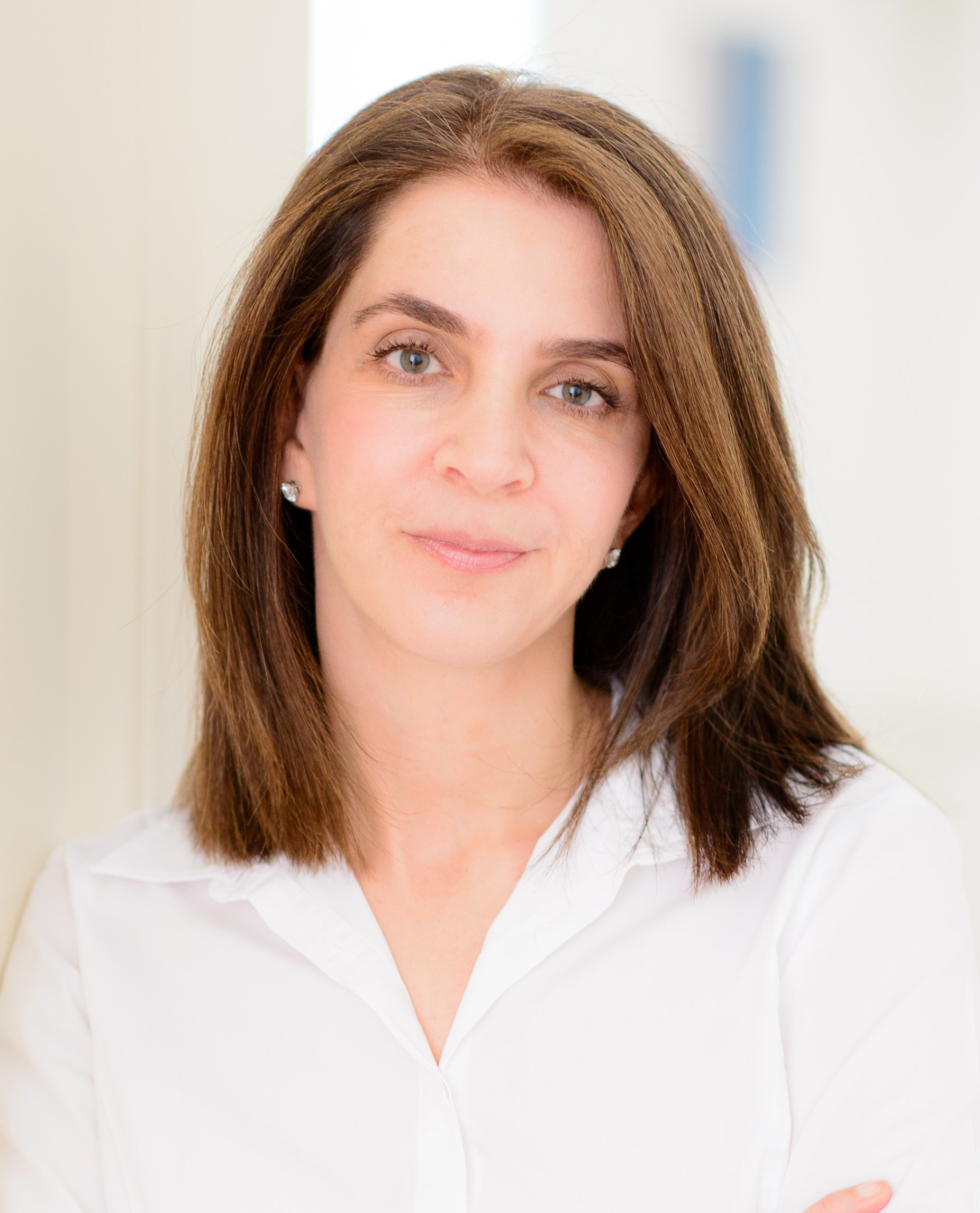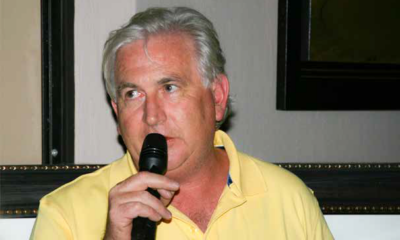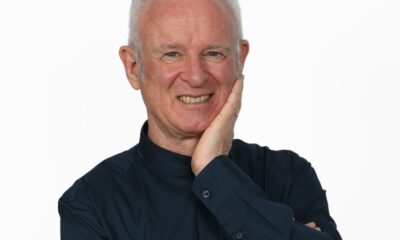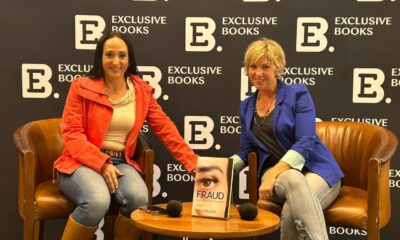
Featured Item

Strong women, extraordinary stories – feminist fiction comes of age
Published
1 year agoon
Acclaimed British fictionalised biography writer Louisa Treger recently released her fourth book, Madwoman, on the life of iconic investigative reporter Nellie Bly. The SA Jewish Report spoke to her before her visit to South Africa in March as a guest of the Jewish Literary Festival.
What drew you from classical musician to author?
My career as a violinist came to an end when I was in my early twenties because I caught a virus, which turned into the debilitating condition of ME (myalgic encephalomyelitis). But the enforced rest gave me an opportunity to rethink my life, and I realised that I wanted to work with words, not music. Nothing in life is wasted. Music was fantastic training for being a writer, not least because it taught me the discipline of sitting down and spending hours alone every day, honing my craft. Also, music training is all about precision. It sharpens the perception of minute acoustic differences that distinguish sounds, and this heightens one’s attention to the nuances of language.
How would you describe yourself?
I’m family orientated and devoted to my friends. I love dogs. South Africa was my late mom’s homeland, and it’s the country of my heart.
How do you choose the topic/subjects of your books?
I seem to stumble on them by chance. For example, a friend asked if I’d heard of Nellie Bly and suggested that I look her up. I did so, and was instantly hooked. As I write more books, it’s apparent that a theme has emerged. I’m drawn to writing about strong women who refuse to conform, and struggle to find their place in the world; women who are ground breakers and pioneers.
Why did you choose the fictionalised biography genre for your books?
I love fictionalised biography because the lives of my subjects give me a framework of interesting facts on which to hang the story. At the same time, the genre allows enough wiggle room to gain emotional access to the past. It gives me licence to imagine myself into the characters’ private thoughts, to invent conversations and details which animate their conflicts and draw out themes I find interesting. The outline of the plot is already there. Within that framework, I’m trying to create my own image of real people.
Your books focus on women (or one woman in particular in each book) fighting for their rights in some form of another. Why do you choose such characters?
I feel like they choose me! They are all extraordinary women, boundary-breakers, and trailblazers who paved the way for the women of today.
What drew you to write about Nellie Bly?
Nellie Bly was America’s first female investigative journalist. To get her first big scoop, she faked madness and got herself committed to a notorious lunatic asylum off the coast of New York in order to expose the terrible conditions.
What got me, what really gripped my imagination, was wondering what kind of woman could do that, especially at the end of the 19th century when women were supposed to be ladylike and reticent. I discovered that Nellie had empathy as well as courage. She changed America’s mental hospitals for the better, and pioneered a path for women in journalism, launching the era of stunt or detective reporting, the acknowledged forerunner of investigative journalism. I found this so inspiring, I couldn’t not write about her.
Nellie literally and in every other way allowed women to exist in new places. She stepped into the lives of others, fighting for justice, understanding that what mattered most to the marginalised was being seen and understood. She not only spoke truth to power, but also exposed the truth for all to see. Now, 135 years later, we still need her kind of advocacy.
What do you want readers to take home about her?
I hope they’ll be fascinated and inspired by Nellie, who started off as an underprivileged girl and became a woman far ahead of her time. She left the world vastly improved.
What has the response been to Madwoman?
The response from readers and critics has been lovely. I’m grateful and relieved. The Cape Argus called Madwoman “magnetic”, and it was a Historical Fiction Book of the Year in The Times and The Sunday Times in London.
Are women 100% emancipated today, or do we still have a feminist struggle?
Nellie’s preoccupations and struggles against the constraints of society to some extent mirror the position of women today. In certain ways, things have changed, and in others, not at all. Look at countries like Iran, where women are brutally suppressed. Issues women – and men – are still up against include freedom of speech, the pay gap between the sexes, attitudes to mental health, and the underrepresentation of the marginalised. All of this brings home to me why I write historical fiction. History isn’t a series of dry facts in the past. It’s a narrative that we live and relive in the present.
Who are the other unsung heroines, like Nellie, we should be paying homage to and haven’t?
There are so many amazing women who’ve been forgotten by history. I’ve picked just three:
Mary McLeod Bethune, who served on Franklin Roosevelt’s “black cabinet”, working as an activist for education and civil rights.
Freddie and Truus Oversteegen, who joined the resistance as teenagers during World War II, and were tasked with seducing Nazi men by inviting them for walks in nearby woods, where the men would be shot by resistance fighters.
Amani al-Khatahtbeh, who started a pioneering publication by and for Muslim women.
You’re working on your fourth novel. What can we expect?
It’s about Dora Maar, Picasso’s lover and muse. She’s mainly remembered as Picasso’s Weeping Woman, as if tears were the only interesting thing about her. But the epithet obscures a talented photographer and a woman of passion and conviction. I think the world should know more about her.
What’s your experience of South Africa and the book reading audience here?
South Africa has a vibrant, diverse community of readers, writers, and booksellers. My experience has been stimulating and wonderful.
What are you looking forward to when coming to South Africa?
To name a few things: a sense of homecoming, family and friends, the sunlight, the impossibly high skies, the beaches and mountains, bobotie, bunny chow, malva pudding … I could go on.
- Louisa Treger will be addressing historical fiction at the Jewish Literary Festival on 21 March. To book or find out more, go to www.jewishliteraryfestival.co.za or call Beryl on 082 490 6652.










